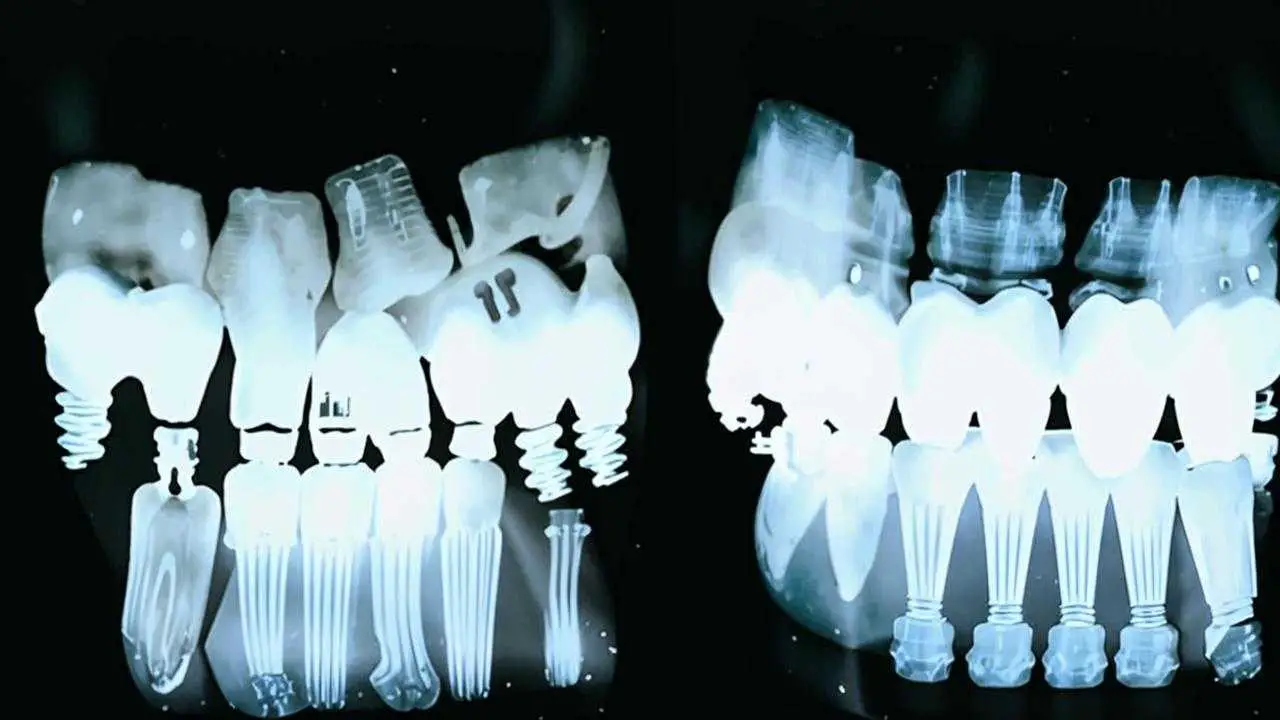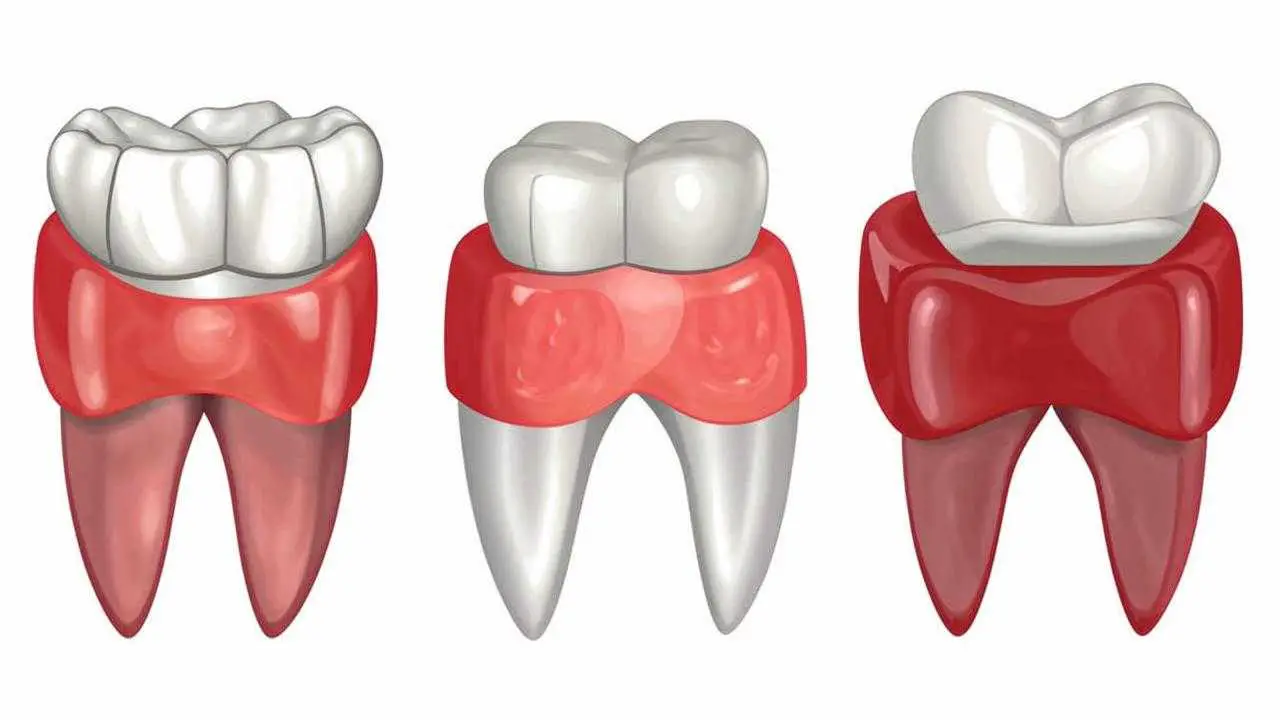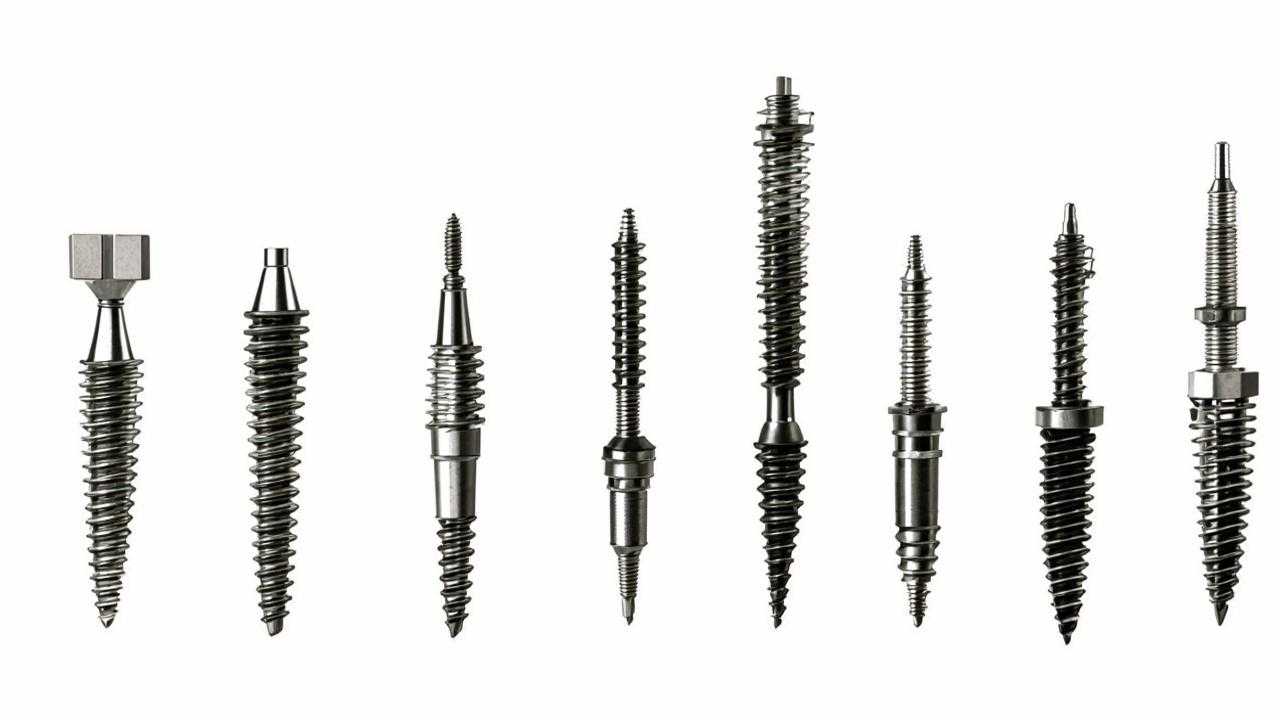The absence of teeth causes many problems: the jaw system is disturbed, internal organs, posture and psychological state are affected. Difficulties with diction and articulation appear. Dentists have developed several protocols for restoring teeth, the most modern of which is implant prosthetics. But, as with any medical intervention, there are contraindications to dental implants.
Implantation is a method of dental rehabilitation of patients who suffer from the absence of teeth. The essence of the method is that a titanium root is inserted in place of the lost unit. Its surface is gradually overgrown with bone tissue and the implant begins to perform all the functions of a living root: it takes on the chewing load, stimulates tissue metabolism, significantly slows down the loss of bone.
Dental implants – contraindications
Let’s start with the good news: the list of contraindications is shrinking as new protocols are developed literally every year. So if a condition is on the list of prohibitions now, the hope is that it won’t be there in a couple of years. However, considering contraindications is important for several reasons:
- The health of the patient. This is a surgical operation in which a foreign object is introduced into the body and provokes a response, so in some pathologies there may be unpleasant consequences.
- Rejection of the implant. A long rehabilitation period can end up with nothing if the factors preventing successful implantation were not initially taken into account.
Signs of implant rejection in the image
It is important for the doctor to know the contraindications in order to take them into account during the treatment process. It is also important for the patient to communicate their condition to the implantologist. It is dangerous to hide common medical conditions, as this can negate the entire work.
Absolute contraindications to implantation
It is too risky to undergo surgery for certain diseases or conditions. In addition, there are a number of diseases in which osseointegration (engraftment) of a foreign body is impossible or difficult.
Implantation is contraindicated in:
Osteoporosis reduces bone density and changes bone structure. It can be age-related (primary) and associated with certain pathologies (secondary). With small bone volumes, implant engraftment is problematic. It is secondary osteoporosis as a symptom that most often serves as a reason to refuse implantation.
- Some blood diseases
Blood cells and bone tissue are constantly interacting. Blood diseases affect bone tissue, impair regeneration and destroy the spongy layer. Poor blood clotting is dangerous for surgery.
- Diseases of the central nervous system
In some mental disorders, diseases that lead to a decrease in intelligence (for example, Alzheimer’s), there is a lack of motivation and ability to comply with the recommendations after implantation, which increases the risk of rejection many times.
- Alcoholism and drug abuse
Ethyl alcohol contains substances that impair bone mineralization, vitamin D absorption. Alcoholic beverages are diuretics, their side effect: increased calcium excretion, which also affects osseointegration.
- Oncologic diseases up to the remission stage
Radiation therapy leads to bone demineralization, and chemotherapy causes intoxication and suppresses bone marrow function. The toxic effects subside after about six months.
- Tumors and dysplasias of the jaws
Intervention can provoke rapid tumor growth and derail the implantologist’s work.
- Severe allergies
Titanium is considered a hypoallergenic material, but severe allergic reactions are treated with medications (corticosteroids) that affect bone metabolism. These patients belong to the group who should not be implanted.
- Endocrine system pathologies
Diabetes mellitus, pituitary disorders, toxic goiter affect bone regeneration.
Relative contraindications to dental implantation
There are certain body conditions in which implantation is possible in principle, but only under certain conditions or after treatment. The list includes:
Implantation is a challenge to the immune system. It is not worth exposing the fetus to this risk.
- Breastfeeding
It is not known what kind of reaction the baby will have to the substances contained in the anesthesia and used after implantation.
- Infectious diseases
The body is weakened by the fight against germs and osseointegration will be difficult. In addition, there is a risk of infecting other people.
- Respiratory diseases
Especially when it comes to the teeth of the upper jaw. In such cases, bone grafting is often used, after which it is undesirable to sneeze, cough and blow your nose. But also on the lower jaw, the implantation will be worse, if the body is simultaneously fighting infection.
- Worsening of the condition (hypertension, loss of strength, stress)
For successful integration, it is important that the patient feels well.
- Exacerbation of chronic mucosal disease
Inflammations distort the clinical picture, prevent accurate implant placement.
- The presence of acute processes in the oral cavity
Abscesses, phlegmons (pustules) cause painful sensations and provoke infection.
- Bite abnormalities
Before placing implants, orthodontic treatment is carried out.
- Unsatisfactory condition of the oral cavity
Contraindication to implantation is the presence of caries, inflammation of the mucosa, periodontal pockets.
- Age under 18 years
Before adulthood, the formation of bone tissue and the relief of the oral cavity takes place. It is necessary to wait until the end of the process to avoid complications.
Risk factors
These are conditions that are not contraindications, but may reduce the effectiveness of the intervention, require parallel treatment or in which implantation is considered as a method of intervention.
These conditions are more difficult to achieve a positive result, require additional effort, the rehabilitation phase is longer and the success rate is lower.
The list includes: maxillary joint dysfunction, periodontitis, periodontal disease. This can also include smoking, age.
How the list of contraindications has been shortened at ICDI ROOTT
Thanks to new implantation techniques, the ROOTT Dental Implant Center performs surgeries on people who were refused in other clinics because of the diagnosis:
In this disease, metabolic processes are disturbed, resulting in the development of increased bleeding. Usually, this is an indication to refuse surgery, but not at ROOTT.
Immunodeficiency pathologies disrupt the process of tissue regeneration, reduce resistance to infections. But with ROOTT implants, intervention is possible (under certain conditions).
Excess glucose provokes inflammation, leads to the leaching of minerals from the enamel, causes bacterial infections and candidiasis. In compensated type II diabetes, implantation is possible.
- Age limitations
With age, bone tissue decreases, metabolic processes and regeneration slow down. This has long been the reason for refusing surgery. In RUTT Dentistry, operations are performed on patients even after 80! The oldest patient of the clinic is 83 years old.
Why it is possible
Thanks to the technology, materials and skillful hands of the doctors, ROOTT DDS performs the most complex surgeries with a high success rate.
Implants
ROOTT Swiss implants are a range of more than 250 products that can be customized for any clinical case. With this choice, it is easy to combine different models. All elements of the implant systems are made of the same alloy, so complications in the form of galvanosis are excluded.
The hydrophilic coating ensures rapid engraftment and the special threading ensures initial stability.
Technologies
The clinic uses innovative methods of dental implant placement:
- One-stage protocol. Temporary prostheses are placed simultaneously with the implants without waiting for implant engraftment.
- Transgingival method of placement. A minimally invasive procedure where the post is screwed in through a puncture in the gum. Allows to do without incisions and sutures.
- One-stage implantation. The post is inserted immediately into the hole of the extracted tooth, without waiting for the wound to heal.
Contraindications to one-stage implantation, transgingival and one-stage implantation are not as extensive. Patients with severe chronic diseases get good results.
With the participation of implantologists from ICSDI ROOTT, an innovative ReSmile protocol has been developed, where the entire tooth row can be restored in 4 days. Prosthetics are performed on an unlimited number of implants, immediately after implantation. 14 teeth are restored, as in a natural jaw.
Doctors of the clinic apply other protocols: All-on-4 (jaw on 4 posts) and All-on-6 (jaw on 6 implants).
That is why it has become possible to operate on patients with infectious, endocrine diseases, serious heart diseases and the elderly.
Doctors – implantologists
The clinic is a member of the Open Society of Dentists, a platform where doctors exchange experience, develop new methods, make presentations and reports. All the doctors of the clinic take courses and trainings to improve their skills, and when manufacturers offer new types of implants, they are trained to place them.
The experience of implantologists is at least 10 years.
The right choice of dentistry in Moscow, the experience of doctors and innovative implantation protocols will help to restore your smile even in complicated cases.


